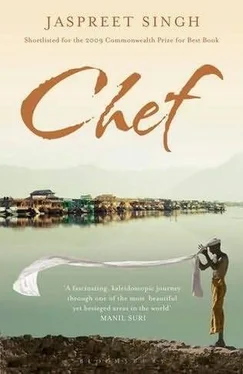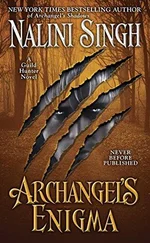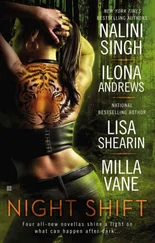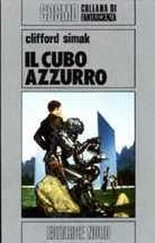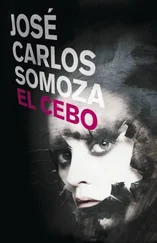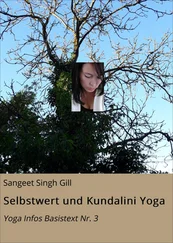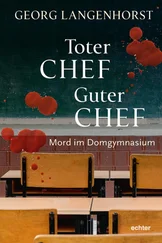The next room was called the Sher-Gil Hall. Briefly I stood before a dazzling composition, Two Nudes. The women looked mysterious despite being naked. However, it did occur to me that the round breasts of the first nude really belonged to the second, and the pointed breasts of the second nude really belonged to the first. The longer I stood there the less I thought about the lips or thighs or breasts, and the more I experienced the warmth and the cold those two women carried inside. They appeared so alone. The reason the painter Husain walks barefoot, I thought, is because he must feel lonely. His art springs out of immense loneliness, I thought.
Diagonally across from the Two Nudes were the stunning black and white portraits of musicians, Hari Prasad Chaurasia, the flute player, Zakir Hussein, the tabla player, and Vilayat Khan, the sitar player, and many others. The next room was dark and smelly. No windows. There was a naked bulb hanging from the ceiling on a single wire, and in that dim fragile light I noticed the form of a woman as if sitting on a toilet bowl.
Sorry, I said and stepped out in panic. In the corridor I felt a hand on my shoulder.
‘Cook! What are you doing here?’
The guard was armed with a light machine gun.
‘Nothing, Major,’ I said.
‘Nothing?’
‘Major,’ I explained, ‘I was looking for you only. Would you taste the dish I have prepared? Took me fifteen hours of hard work. I offer my new dishes to all the staff members and guards. This is how I learn how good they are!’
‘But, why are you carrying your shoes?’
‘This place is like a shrine, Major. That is why.’
He looked utterly confused and stared at Agha’s radio.
‘Here,’ I said, handing him the radio. ‘Listen to the latest cricket score. Let me bring you the dish.’
‘Bring it to the roof terrace,’ he yelled.
I rushed back to the kitchen, and brought him a bowl of wild mushroom risotto, and a tall glass of cherry-blueberry l-a-s-s-i. The guard moistens his lips and lowers his nose. He smells the risotto. Italian, I say. Foreign food, Major. You are a good man, he says. But you must never enter the art rooms. Only officers. Honest mistake, I say. Why are you trembling? he asks. Is it any good? I ask him. You are the ustad of cooking, he says. Serious, Major? I ask. Tell me. What do you think about the Two Nudes? He stares at the bowl. Come on, I say. You must have seen the painting. He tunes Agha’s radio to the sports channel. India is playing West Indies in Barbados. The reception is crystal clear. Then I pour him rum.
‘What do you think about the horses, Major?’ I ask.
Horses, he says. The painter knows nothing about horses. How could one forget to show the most important thing, the horsehair… You are a good man, he says, but I don’t want you to feed anyone else in this building. Is there a guest? I ask. There is the woman, he says, spooning the risotto. She’s in the room next to the paintings, Major. She is a dangerous suicide bomber, he says. What is she doing here? Why is she not in a regular prison? I ask. He nods. I do not know. Perhaps she is here because this is the least likely place to find her, this is the cleverest way to dupe the enemy. She is still being interrogated. Officers come now and then to interrogate her.
Next day I visit the Guest House again. With new dishes. Duck vindaloo and cardamomed mango. The guard and I have lunch upstairs on the terrace. Major, I would like to interrogate her, I say. He laughs. His breath stinks of rum. And what are you going to ask her? Hazaar things, I say. Like what kind of food the enemy eats, what kind of dishes the enemy’s General eats. How does he eat? How many times a day? Is he prone to diarrhea? Constipation? Does he fart? I will ask her very important questions. Plus I have Governor Sahib’s orders to interrogate her.
‘You have what?’ he asks.
‘Gen Sahib’s permission and order to ask her the questions.’
‘Major, in that case, I will open the room for you.’
But, that was not the real reason he unlocked the door.
‘Here,’ I said. ‘Try some gulab jamun.’
The room had the worn look of colonial times. The carpet was dark and moldy and the bathroom door open. Close to the ceiling there were huge military bootprints stamped on the wall.
She was talking to herself. In Kashmiri.
When she felt my presence her body stirred a little. She did not raise her bent head. Her hair had grown back and it was wild and she did not have on the headscarf. I sat in the chair across from the bed. Her gaze remained fixed on the floor. There was a table in front of my chair. I opened my bag and pulled out two glasses and plates and spoons, and Coke and fish and biryani and placed everything on the table. Now and then sounds of guards marching outside penetrated the room, and sounds of dogs barking. The muezzin’s call from a distant mosque penetrated as well.
I served her.
Not a single word had been exchanged between us so far. She ate slowly the fish and biryani, and I adopted her speed. Now and then I looked at her but our silence made the looking harder. I fixed my gaze on the bottle of Coke on the table. Bubbles at the top were bigger than the ones at the bottom. I wanted to ask her many questions. Instead, I was at a loss for words.
I heard her finish, and looked up. She was staring at me. The steel plate, still in her hand, was shining in the light.
‘More biryani?’ I asked.
She kept staring at me.
‘I know you,’ she said.
My hair was short now, no beard, and I had removed my turban. But she had recognized me.
‘Why did you?’ she asked.
‘Because-’
The dogs were barking louder outside.
‘I’ll tell you later,’ I said.
To prove to her my identity I had walked into the room with Chef’s journal in the bag. But she had recognized me and there was no need to provide more proofs. That is why it was inappropriate to show her an object she could not even read.
‘Do you recognize this?’ I handed her the journal.
She seemed indifferent.
Then I said something I shouldn’t have.
‘He is dead,’ I said.
‘Who?’
‘The man who wrote these pages.’
‘Why are you telling me this?’
I moved to the edge of her bed.
‘Why did you cut your hair?’
‘Irem, you are for me -’
‘Why did you?’
The next ten or fifteen minutes I told her everything about Kishen. Everything. I don’t know why. Things I found difficult sharing with men in the barracks, I revealed to her in one single breath. At first she paid little attention to what I was saying, lost in some other world. Is she afraid? I asked myself. But somewhere down the line she grew drawn to Chef’s address to the soldiers on the glacier.
‘The biryani you consumed was really out of Chef’s recipes,’ I said.
‘Same to same man who taught you Rogan Josh?’
I liked the way she said same to same.
‘Same-to-same man whose journal you read,’ I joked.
She was quiet again.
‘No tomatoes in Rogan Josh,’ I said.
Then I opened the journal. I didn’t read everything. I censored many passages. But there were words even I had no control over. Forgiveness is a strange animal: I felt the need to ask her forgiveness. Otherwise I could not sit next to her. Could she forgive me for being from the enemy side? I read the journal to her: Like most Indians I grew up prejudiced against Muslims. But unlike most of my country men I do not believe in caste. My difficult posting on the Siachen Glacier has taught me how tiny and fragile the human body is. It is a waste of time to be prejudiced. A waste of breath.
She walked to the window. There was no window. She pretended there was a window. She stood there as if she was looking at the view outside. I knew what was outside: my cycle leaning against the plane tree, and next to it was the nurse’s cycle. The nurse and I had failed to connect, but our cycles had met and they were making love to each other.
Читать дальше
Конец ознакомительного отрывка
Купить книгу
